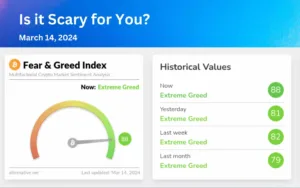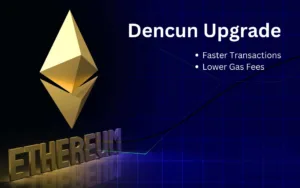Key Takeaways:
- Indian Crypto Regulations will be based on IMF and FSB technical paper.
- The paper was mostly negative but rejected the idea of a crypto ban.
- It could take around 12-15 months depending upon the complexity of the law.
A while ago, during India’s G20 Presidency, Nirmala Sitharaman, the Finance Minister, had asked for a global consensus on regulating cryptocurrencies. Indian crypto regulations were supposed to be based on a joint technical paper, which was to be submitted by IMF and FSB.
Now, that both the institutions have submitted the technical paper, called the Synthesis Paper, on “regulation of digital assets”, it is expected that India will soon formulate a regulatory law on cryptocurrencies based on those papers.
Table of Contents
What does the Synthesis Paper by IMF and FSB Say?
The most major things noted on the paper was that it would be impossible to ban crypto. This is because of crypto addresses’ ability to communicate with other nodes on its own. Further, since most of the crypto addresses, wallets and even nodes are anonymous, it would be impossible to track transactions as long as they do not convert these assets to cash.
The second major opinion was to stop the flow of capital into crypto. The reason stated for this was that it could destabilize a country’s macroeconomics which was true but only for micro and smaller sized economies. Larger economies like India, USA, China, and France have complex mechanisms of making fiat more desirable than cryptocurrencies.
Third major statement notes that crypto poses a serious environmental risk supposedly because of Proof of Work Consensus Mechanism. This is the same consensus mechanism that powers Bitcoin. It was argued in the paper that crypto consumes a lot of energy and also produces a lot of waste.
However, a solution to this could be the path which was followed by Ethereum. The blockchain converted itself from a Proof of Work blockchain to a Proof of Stake blockchain and therefore reducing 99.9% of its energy consumption.
When can we Expect Indian Crypto Regulations?
In my experience as a close observer of Indian laws, I saw that it generally takes 2-6 months to formulate a bill, which is the precursor of an act (law).
Then it takes almost 6 to 9 months again to frame the rules by which the law will be implemented.
This time, since there is a considerable amount of financial aspects involved including taxation, tracking and reporting, it would take a little more time.
Overall, the crypto regulations should be converted into a bill in almost a year from now.
Key Considerations of Indian Crypto Regulations
While creating a crypto policy, India could keep the following aspects of regulation and also integrate them into the crypto policy.
- There could be an advanced version of KYC rules which could integrated big data with Aadhar-based surveillance. Aadhar is very well integrated with Indian financial system, from financial institutions, digital banking, mobile numbers to payment apps.
- Crypto could be taxed uniformly, but in line with global taxation levels which could either stay at the current 30% with some minor changes. However, in my opinion as a professional with MBA Finance, I think it could also reduce to somewhere between 25% or 20%.
- India already has crypto under Prevention of Money Laundering Act. There could be a PMLA or Anti Money Laundering officer mandatory for each crypto company. This might be in combination with stringent financial audits.
- Bringing crypto exchanges within the same compliance as money dealers (businesses which deal in foreign exchange).




